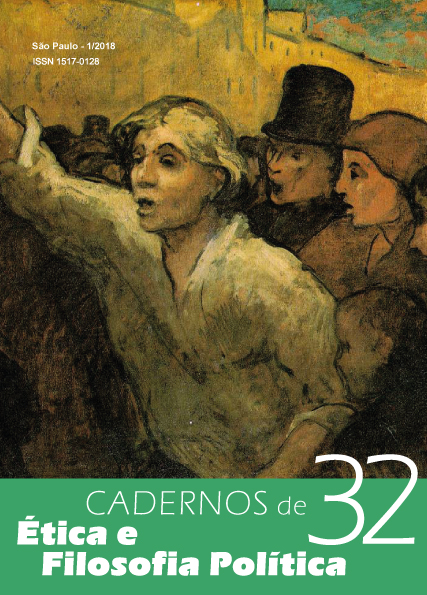Claude Lefort y los regímenes de la política en las Américas
DOI:
https://doi.org/10.11606/issn.1517-0128.v1i32p110-122Palabras clave:
Claude Lefort, Post-Marxism, Carl Schmitt, DemocracyResumen
Since the transitions to democracy of the eighties, two trends of post-Marxist thought had dominated the debates in the region. On the one hand, that of a reading of Gramsci that was split between a more conventional, social-democratic version and a poststructuralist, self-proclaimed radical one. On the other hand, there was also a quite influential trend: a phenomenological one that relied on the anti-totalitarian theorizations of authors such as Hannah Arendt and Claude Lefort. The fellow travelling of these two parallel theoretical and political projects came to an end, however, with the Schmittian turn given by some of the authors associated to the label of radical democracy. This paper will conclude with a critique of this “turn”. Before that, however, a summary and reformulation of Claude Lefort’s notions of forms of society and regimes will be offered as a general framework for the reconsideration of these debates.
Descargas
Referencias
CHERESKY, I. El nuevo rostro de la democracia. Buenos Aires: FCE, 2015.
MERLEAU-PONTY, M. Les aventures de la dialectique. Paris: Gallimard, 2000.
MERLEAU-PONTY, M. Le visible et l’invisible. Paris: Gallimard, 1964.
RANCIÈRE, J. The Politics of Aesthetics. New York: Continuum, 2006.
RANCIÈRE, J. Le partage du sensible. Esthétique et politique. Paris: La fabrique, 2000.
Descargas
Publicado
Número
Sección
Licencia
Derechos de autor 2018 Martín Plot

Esta obra está bajo una licencia internacional Creative Commons Atribución-CompartirIgual 4.0.


